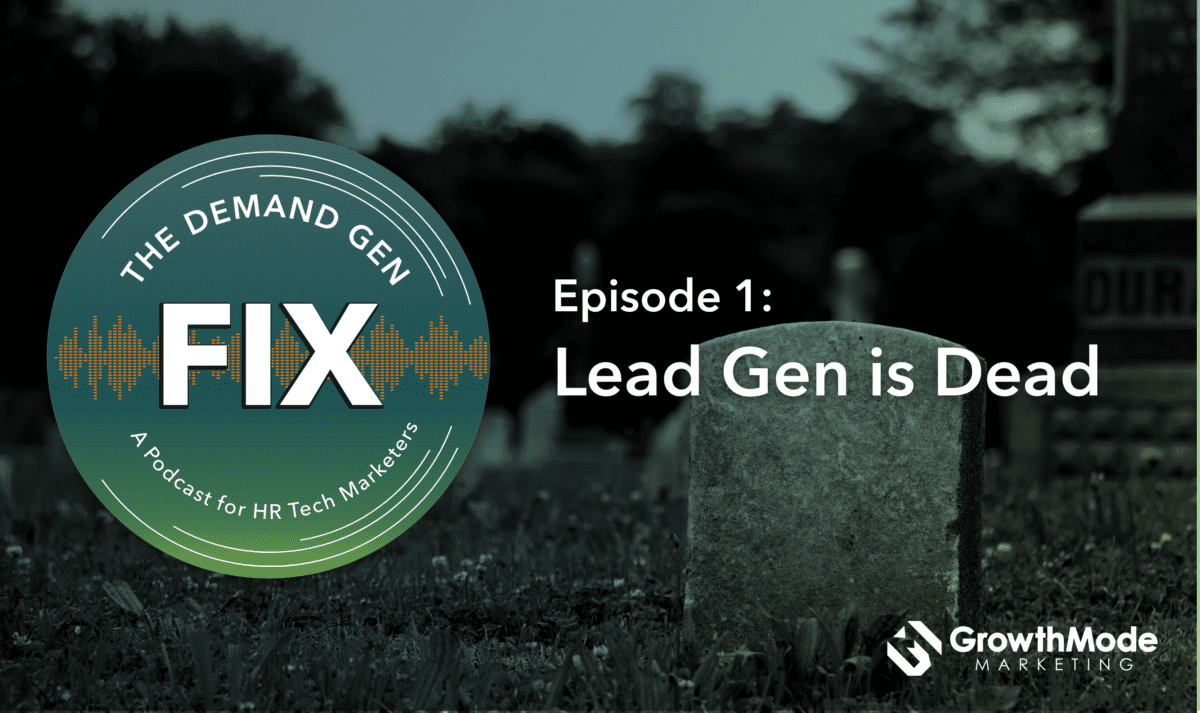How has the rapid advancement of technology shaped today’s marketing landscape? If you look for a concise answer to the technology impact on marketing, you’ll find that it’s a complex fusion of innovations directly influencing strategies and outcomes. At the heart of this intersection of technology and marketing lies an exciting era of transformation, defined by personalization, real-time interactions, and data-driven decisions.
At GrowthMode Marketing, we believe this new era pivots on mastering and utilizing emerging technologies to not only understand the market but to make meaningful connections and drive growth. Embracing the shift from traditional to digital platforms, optimizing websites, leveraging SEO and harnessing social media interactions, begin to only scratch the surface.
Whether it’s marketing automation, predictive analytics, search engine optimization or the impressive strides in AI, all new technologies are dramatically reshaping our marketing strategies. Their infusion has led to a seismic shift from bulk, disorganized messages to hyper-personalized, targeted campaigns. But that’s only one dimension of the impact.
Much of this technology impact on marketing can be summed up in the following ways:
- Increasing Efficiency: Automating repetitive tasks, saving time, and reducing human error.
- Data-Driven Decisions: Harnessing vast amounts of data for insights to fine-tune marketing strategies.
- Personalization: Crafting personalized experiences for customers based on their preferences and behaviors.
- Real-Time Interactions: Facilitating immediate response, real-time adjustments, and faster resolution of customer issues.
- Expanding Reach: Helping businesses attain global exposure and tap into new markets.
As we delve deeper into this discussion, we’ll demystify the amalgamation of technology and marketing. From the layers of digital marketing to the impact of AI, analytics and more, we’ll highlight pivotal changes and insights that will help adapt your marketing strategies for this new era. Let’s together navigate this transformative journey, capitalizing on the technological tools at our disposal, and clear off the ambiguities that lay ahead. Buckle up, for the future of marketing is here, and it’s incredibly exciting!
The Evolution of Marketing in the Digital Age
In the last few decades, we’ve seen the technology impact on marketing evolve at an unprecedented rate. This digital revolution has drastically reshaped the marketing landscape, transforming the way businesses interact with their customers.
The Shift from Traditional to Digital Marketing
The marketing sector has witnessed a significant shift from traditional methods like TV ads, billboards, and print media to more dynamic digital platforms. The key catalyst for this transition? Technology. With the advent of the internet, businesses now have a plethora of digital channels at their disposal, ranging from email to websites, and social media.
Digital marketing offers businesses a new level of precision and efficiency, allowing them to reach their target audiences directly, in real time. Unlike traditional marketing methods, digital marketing enables businesses to track their campaigns’ performance, making it easier to iterate and optimize for better results.
The Role of Websites and SEO in Modern Marketing
A website is a vital asset for any business. It serves as your online storefront, offering a platform for you to showcase your products or services to a global audience. But having a website is just the starting point. To truly leverage its potential, businesses need to invest in Search Engine Optimization (SEO).
SEO is a cost-effective digital marketing strategy that helps improve the visibility of your website on search engines. A well-optimized website not only attracts more traffic but can also generate quality leads, enhancing business growth. At GrowthMode Marketing, we understand the power of SEO, and we help businesses climb the search engine ranks to reach their target audience effectively.
The Rise of Social Media as a Marketing Platform
The rise of social media has been another game-changer in the marketing field. Platforms like Facebook, Instagram, and Twitter have become invaluable marketing tools, enabling businesses to engage with their customers on a more personal level.
Social media marketing offers businesses a unique opportunity to share engaging content, build brand awareness, and foster strong relationships with their audience. It also provides valuable insights into customer behavior, which can be used to refine marketing strategies and drive sales.
In sum, the technological revolution has not only reshaped the marketing landscape but has also opened up new avenues for businesses to connect with their customers. Embracing these changes is not an option but a necessity for businesses aiming to thrive in the digital age. Stay tuned as we delve deeper into the impact of emerging technologies on marketing in the upcoming sections.
The Impact of Emerging Technologies on Marketing
Just as technology continues to evolve, so does the marketing landscape. New technologies are being developed and implemented in various sectors, and marketing is no exception. The rise of artificial intelligence, the metaverse, virtual and augmented reality, and Web 3.0 are all transforming the way we approach marketing. Let’s explore the influence of these emerging technologies on the marketing world.
Artificial Intelligence (AI) and Machine Learning (ML) in Marketing
Artificial intelligence and machine learning are no longer futuristic concepts. They have become a crucial part of today’s marketing strategies, helping businesses gather user data and deliver personalized ads and content to users with similar interests. The global AI market, valued at $51 billion in 2020, is expected to reach $641 billion by 2028, reflecting the tremendous potential AI holds in revolutionizing marketing.
AI and ML can automate repetitive tasks, saving time, and reducing human error. They enable businesses to make data-driven decisions that enhance productivity and improve the overall customer experience. However, mastering the customer persona and understanding the target audience is vital to fully leverage AI’s potential in marketing.
The Metaverse: A New Frontier for Marketing
The metaverse, a connected virtual world for social interaction via the internet and augmented and virtual reality headsets, is set to transform marketing. Although it’s still in its infancy, ignoring the metaverse could be a grave mistake for marketing strategists. Big brands like Nike and Adidas are already exploring the concept of the metaverse, marking the beginning of a new era for marketing.
Virtual Reality (VR) and Augmented Reality (AR) in Marketing
Virtual and augmented reality technologies have already started to reshape the marketing landscape. They offer immersive experiences, enabling brands to interact with their customers in novel ways. For instance, AR technology has been adopted by many furniture stores, developing mobile apps allowing customers to visualize furniture in their rooms. Likewise, Gucci has incorporated AR technology in its app, allowing users to try on shoes virtually.
Web 3.0 and its Potential Impact on Marketing
Web 3.0, the next generation of the internet, promises to bring a more connected, open, and intelligent web experience, which could significantly impact marketing. This new wave of technology emphasizes user privacy, data ownership, and decentralization, opening up new opportunities and avenues for marketing.
As an HR technology company or workforce technology company, understanding and leveraging these technological shifts is crucial for staying ahead in a fiercely competitive market. At GrowthMode Marketing, we’re committed to helping our clients navigate these market trends, build their digital footprint, and drive high growth.
As we move forward into this new era of marketing technology, the key to success is adaptability. Businesses must be open to change, ready to evolve with the times, and willing to embrace new technologies that can help them connect with their audience in more meaningful ways. The technology impact on marketing is profound and far-reaching, offering exciting opportunities for businesses ready to step into the future.
The Benefits and Challenges of Technology in Marketing
As we dive deeper into the technology impact on marketing, it’s important to recognize the two sides of the coin. While technology offers numerous benefits, it also presents some significant challenges that marketers need to navigate.
Benefits: Reach, Personalization, and Cost-Effectiveness
Technology has fundamentally transformed the way we do marketing, bringing about significant advantages.
1. Reach: Technology, especially through the rise of social media and digital marketing, has expanded the reach of businesses. Now, companies can connect with consumers from all corners of the globe, breaking down geographical barriers.
2. Personalization: One of the most significant benefits of technology in marketing is the ability to personalize messages. With the help of data analytics and AI, marketers can tailor their messages to meet the specific needs and preferences of individual consumers. This level of personalization can drastically improve engagement and conversion rates.
3. Cost-Effectiveness: Technology has made marketing more cost-effective. Digital marketing campaigns, for instance, often require less investment compared to traditional marketing methods yet can yield significant returns. In addition, tools like AI and automation can streamline marketing operations, reducing costs and improving efficiency.
Challenges: Need for Expertise, Risk of Fraud, and Ad Blindness
Despite the numerous benefits, the technology impact on marketing also comes with its share of challenges.
1. Need for Expertise: The digital landscape is complex and ever-changing. To effectively leverage technology in marketing, businesses need expertise in various areas like search engine optimization, content creation, and data analytics. This need for specialized knowledge can be a significant hurdle, particularly for small businesses.
2. Risk of Fraud: The rise of e-commerce and online marketing has unfortunately also led to an increase in internet fraud. From fake trademarks to social media scams, businesses need to be vigilant and invest in robust security measures to protect their brand and customers.
3. Ad Blindness: Another challenge is ad blindness, where users ignore or miss advertisements on websites. This can make it difficult for businesses to reach their target audience, despite investing in online advertising. To overcome this, marketers need to get creative and find effective ways to capture their audience’s attention.
At GrowthMode Marketing, we understand these challenges and help our clients navigate through them. Using our expertise in digital marketing, we create strategies that maximize the benefits of technology while mitigating its drawbacks. From designing personalized marketing campaigns to helping businesses stay up-to-date with the latest trends, we ensure our clients are well-equipped to thrive in this new era of marketing technology.
In the next section, we’ll explore the future of marketing and how businesses can adapt to the rapid technological innovations.
The Future of Marketing: Adapting to Technological Innovations
The technology impact on marketing will continue to evolve, presenting both exciting opportunities and new challenges. The future of marketing lies in a business’s ability to adapt to these changes and leverage them effectively.
The Importance of Adaptability in Marketing
The speed at which technology is advancing necessitates agility and adaptability. Businesses that fail to evolve risk falling behind competitors who are more adept at harnessing the power of new technologies.
Adaptability in marketing goes beyond merely adopting the latest tools or platforms. It involves understanding the nuances of the ever-evolving digital landscape, recognizing the changing needs and behaviors of your target audience, and tailoring your marketing strategies accordingly.
Having a partner like GrowthMode Marketing can be invaluable in this regard. We stay abreast of the latest trends, continually honing our skills and expertise to help our clients navigate the changing tides of the digital marketing world.
Balancing Technology and the Human Touch in Marketing
Despite the growing reliance on technology in marketing, it’s crucial to remember that at the end of the day, marketing is about connecting with people. As such, striking a balance between leveraging technology and maintaining a human touch is essential.
While AI and machine learning can help streamline processes and deliver more personalized experiences, they can’t replace the emotional connection that comes from human interaction. For instance, a well-crafted email or social media post can resonate more deeply with your audience than an automated message, no matter how personalized.
At GrowthMode Marketing, we believe in utilizing the best of both worlds. We leverage advanced technologies to drive efficiency and effectiveness, but we never lose sight of the human element. We understand that our clients’ customers are people, not just data points, and we strive to create meaningful, emotional connections that drive engagement and loyalty.
In conclusion, the future of marketing is bright and full of potential. As the technology impact on marketing continues to evolve, businesses that can adapt and balance the use of technology with a human touch will be best positioned for success. At GrowthMode Marketing, we’re here to help guide you on this journey, every step of the way.
Conclusion: Embracing the New Era of Marketing Technology
As we move forward into this new era, it’s clear that the technology impact on marketing is profound and transformative. From the way we engage with our audience to the metrics we use to measure success, technology has reshaped the marketing landscape in ways we couldn’t have imagined a few decades ago. It has brought us new channels, tools, and techniques, and enabled us to create more interactive and engaging content. It has also given us access to invaluable insights into customer behavior and preferences, which has made our marketing campaigns more personalized and effective.
However, with these advancements comes the need for adaptation and learning. This is where we, at GrowthMode Marketing, come in. We understand the changing dynamics of marketing in the digital age and are experienced in leveraging the power of technology to drive demand and generate quality leads.
As an HR tech or workforce tech company, understanding and embracing the technology impact on marketing is crucial to your success. Whether it’s leveraging the power of SEO, PPC, and social media to reach your ideal customers, or using data-driven strategies to create valuable content, our demand generation services are designed to help you navigate the complexities of the market and stand out from the competition.
Looking ahead, we see a future where technology continues to play a pivotal role in marketing. This is particularly true in the realm of B2B marketing, where the shift towards digitization, flexibility, and hybrid work environments is making the need for demand generation services more important than ever. As one Reddit user aptly put it, “We don’t need to all be technologists to appreciate the idea that the internet (with net neutrality) enables the American dream online.” (source: reddit)
In closing, the technology impact on marketing is not just a trend, but a fundamental shift in the way businesses connect with their customers. It’s about understanding the value of integrated marketing strategies, and leveraging the power of demand generation. It’s about building a brand that resonates with your audience, fosters trust, and drives high growth.
For further insights into how technology is shaping marketing, we invite you to explore our blog and other resources on our website. And remember, in the ever-evolving world of marketing, staying ahead of the curve is not just about embracing the latest technologies, but also about understanding and responding to the changing needs and behaviors of your customers. That’s the GrowthMode Marketing way.





